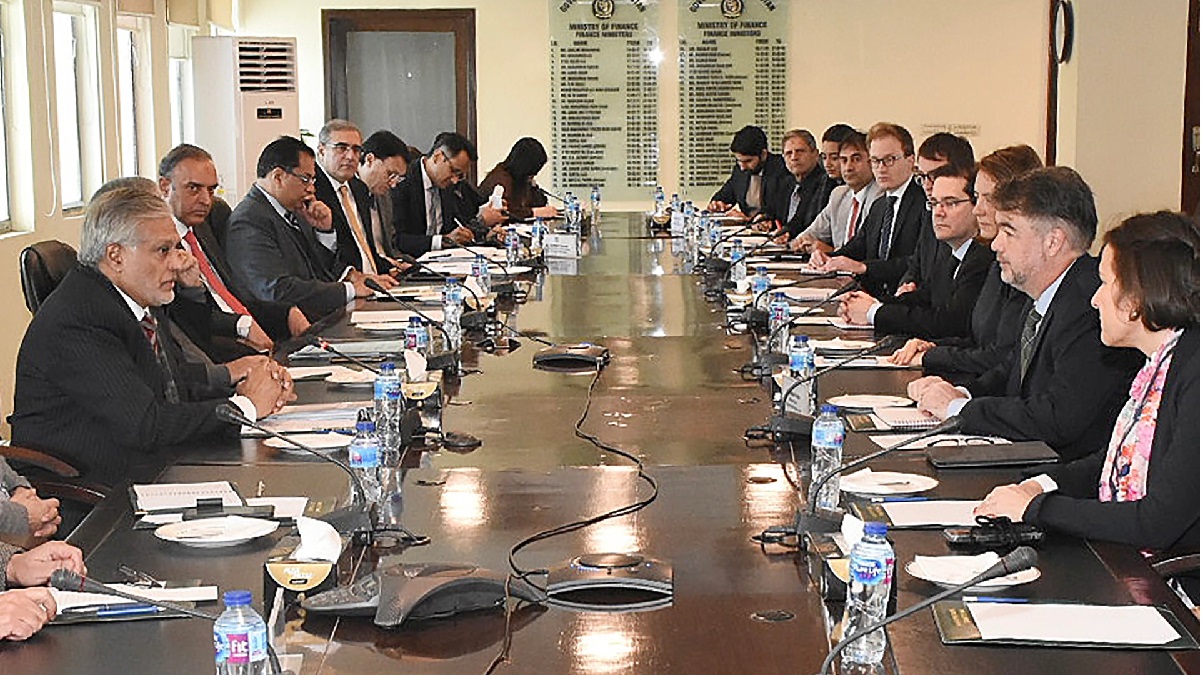Pakistan’s hopes for a revival of the $6.5 billion bailout package have been further eroded as the International Monetary Fund (IMF) has demanded the country to arrange fresh loans worth $8 billion to cover external debt repayments in the next seven months. The IMF has also requested to approve the upcoming budget for fiscal year 2023-24, but this demand remains unmet, minimising the chances of an early completion of the pending 9th review of the Extended Fund Facility (EFF).
Government sources suggest that the IMF raised the demand for additional financing from $6 billion to $8 billion aimed at ensuring debt repayments coming up from May to December 2023. However, Pakistan has not accepted the new additional financing demand, claiming that the Fund’s current programme will end in June 2023 and it should not put conditions beyond the programme period.
In February, the IMF requested Pakistan to arrange $6 billion in fresh loans, excluding rollovers and refinancing, to meet debt repayments until June 2023 and to stop the further depletion of foreign exchange reserves. Due to a delay in arranging these funds, the 9th programme review worth $1.2 billion remains incomplete.
On Monday, Pakistan’s Finance Minister, Ishaq Dar, informed the IMF executive director that Pakistan had met all prior actions. Saudi Arabia has promised to give $2 billion while the United Arab Emirates has committed $1 billion in fresh loans. However, the remaining $3 billion can only be arranged once the IMF announces a staff-level agreement, and the board approves the ninth review along with the $1.2 billion tranche, said the finance minister.
Read More: Pakistan Faces Risk of Default Without IMF Bailout, Warns Moody’s
Obtaining commitments of “significant additional financing” is crucial before the IMF approves the release of pending bailout funds that are essential for Pakistan to resolve its acute balance of payments crisis, according to the IMF spokesperson. The IMF’s focus is now more on ensuring that Pakistan does not default by arranging funds to the extent of external debt repayments, instead of emphasising on increasing the extremely low foreign exchange reserves.
Meanwhile, Pakistan’s foreign exchange reserves held by the State Bank of Pakistan have fallen to $4.4 billion. The government has been trying to avoid default by putting the brakes on imports, as its debt-related financial inflows have almost dried up due to a delay in reaching a deal with the IMF. However, the finance minister argued that the delay in the IMF deal should not be linked to default.
In conclusion, the IMF’s demand for additional financing has increased to $8 billion, and Pakistan has not accepted the new condition. The delay in arranging fresh loans worth $6 billion has also impacted the pending 9th review of the Extended Fund Facility. Obtaining commitments of “significant additional financing” is essential before the IMF approves the release of pending bailout funds.



























